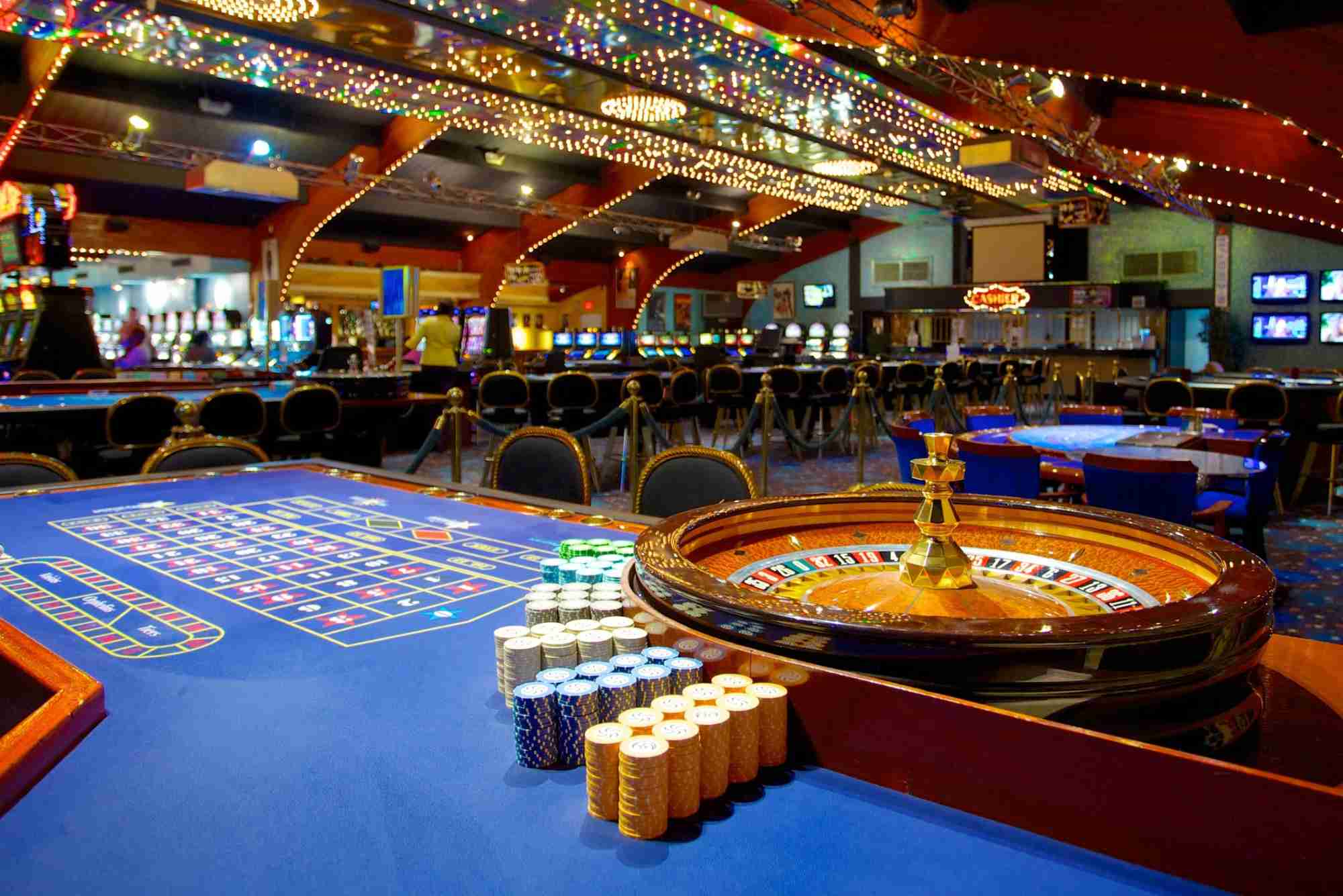For many people, betting starts as harmless entertainment — a fun way to add excitement to watching sports or playing online casino games. The thrill of the odds, the rush of a win, and the hope of hitting it big can be intoxicating. But when the line between fun and obsession starts to blur, the consequences can quietly pile up. Betting too much doesn’t always happen overnight; it often creeps in gradually, disguised as a few “extra bets” or an attempt to “win back losses.”
Understanding what happens when you bet more than you can afford is crucial — not just for your finances but also for your mental health, relationships, and long-term stability. Let’s explore how betting can turn from a pastime into a problem, and how to regain control if you find yourself caught in that cycle.
The Psychology Behind Betting More Than You Should
Most people who enjoy betting don’t set out to gamble excessively. It usually begins with positive reinforcement — that first small win, the dopamine rush, and the feeling that you might have a “lucky streak.” As you play more, your brain starts associating betting with excitement and reward. The problem? The same neurochemical that makes winning so satisfying also fuels the urge to keep playing even after losing.
This is called “loss chasing” — the belief that the next bet will make up for what was lost previously. It’s an emotional trap rather than a rational decision. The more you chase, the deeper you often fall. Over time, betting becomes less about enjoyment and more about trying to escape losses or emotional discomfort.
Many players on uk betting sites experience this transition subtly. These platforms are designed to be engaging — quick bets, instant deposits, and constant access from mobile devices. The convenience makes it easier than ever to place one more wager, even when you know you probably shouldn’t. While there’s nothing inherently wrong with online betting, the challenge lies in knowing where to draw the line.
Financial Consequences: The Most Immediate Impact
The first and most visible consequence of betting too much is financial loss. At first, it might be small — a few pounds here and there. But when betting becomes compulsive, those small amounts quickly add up. What begins as a weekend habit can spiral into overdrafts, unpaid bills, or even debt.
The illusion of control plays a major role here. Many bettors believe that with just the right strategy or timing, they can turn things around. But gambling systems are built with a mathematical edge that favors the house, meaning the longer you play, the more likely you are to lose.
Once your financial cushion disappears, the emotional and social consequences start to follow. You might start hiding losses from loved ones, borrowing money to keep betting, or convincing yourself that one big win will “fix everything.” Sadly, these are signs that gambling has moved from entertainment to compulsion.
The Emotional and Psychological Toll
The emotional cost of excessive betting can be even more damaging than the financial one. When you lose more than you can afford, feelings of guilt, anxiety, and shame are quick to follow. This creates a dangerous cycle — the more distressed you feel, the more you might gamble to escape those feelings, which only deepens the problem.
Over time, this emotional rollercoaster can lead to depression, insomnia, and in severe cases, even suicidal thoughts. People who bet heavily often isolate themselves from friends and family out of embarrassment or fear of judgment. This isolation makes it even harder to seek help or regain perspective.
Professional studies on gambling psychology show that individuals who regularly exceed their betting limits experience higher levels of stress-related hormones like cortisol. This constant state of mental tension affects not only your decision-making ability but also your overall health. In simple terms, when you’re betting too much, your brain and body are under constant strain.
When Betting Becomes a Hidden Addiction
One of the most deceptive aspects of gambling addiction is how easily it hides in plain sight. Unlike substances such as alcohol or drugs, gambling doesn’t leave visible physical signs. You can look perfectly fine on the outside while struggling internally with compulsive urges, mounting debts, and emotional exhaustion.
Addiction experts often refer to gambling as the “silent addiction.” It doesn’t always draw immediate attention from others, which makes self-awareness even more important. If you’re constantly thinking about your next bet, lying about how much you’ve spent, or feeling anxious when you’re not gambling, these are strong indicators of a deeper problem.
And the digital world makes this easier than ever. Modern betting apps offer 24/7 access, live betting, and push notifications that tempt you back in at every opportunity. The convenience is a double-edged sword — it removes barriers to entertainment but also to excess.
The Ripple Effect on Relationships and Work
When you bet too much, the impact extends beyond your personal life. Relationships often suffer first. Partners and family members may notice changes in mood, secrecy, or financial strain. Arguments about money become common. Trust erodes when bets are hidden or when promises to stop are repeatedly broken.
In the workplace, excessive betting can lead to decreased productivity, distraction, and even absenteeism. It’s not uncommon for problem gamblers to spend work hours checking odds, managing bets, or thinking about upcoming games. The stress of financial loss can make it difficult to focus, leading to performance issues that put jobs at risk.
The emotional distance caused by constant gambling often leaves loved ones feeling frustrated or helpless. This can damage long-standing relationships and create feelings of resentment that are hard to repair later.
Why It’s So Hard to Stop
If you’ve ever told yourself, “I’ll just stop after this next bet,” you’re not alone — and you’re also not weak. Betting addiction works on the same neurological pathways as substance addiction. Every near win, every close call, every tiny victory triggers dopamine release. Your brain becomes conditioned to crave that feeling again and again.
Casinos and betting sites know this psychology well. The design of odds, the flashing notifications, and the easy “deposit now” buttons are all meant to keep you engaged. Stopping feels hard because you’re fighting both habit and chemistry.
What makes recovery possible is awareness. Recognizing that betting too much isn’t about luck or skill — it’s about behavior and impulse control — is the first step toward change.
Rebuilding Control and Balance
The good news is that it’s entirely possible to regain control. Many people have successfully overcome gambling problems and built healthier relationships with betting. The key lies in taking small, consistent actions.
Start by setting clear betting limits — not just financial ones but also time-based limits. If you find it hard to stop once you start, use tools that allow you to self-exclude or freeze your accounts temporarily. Talking to someone you trust — whether it’s a friend, family member, or counselor — can help break the secrecy that fuels addiction.
Professional support is also available through organizations that specialize in gambling recovery. Cognitive-behavioral therapy (CBT), for example, has proven effective in helping people change harmful patterns of thought and behavior associated with excessive betting.
Another helpful approach is to redirect your focus toward other rewarding activities. Exercise, social hobbies, or creative outlets can help replace the emotional high that betting provides with something healthier and more sustainable.
The Responsible Way to Enjoy Betting
Not everyone who bets excessively becomes addicted, but anyone can fall into risky habits. The responsible way to enjoy betting is to treat it as entertainment, not as a financial solution or emotional escape. Set firm limits, take breaks, and never chase losses.
Many reputable platforms now offer self-control tools like deposit caps and “time-out” features. These aren’t signs of weakness — they’re signs of maturity and awareness. The ability to walk away from a bet, even when tempted to continue, is the ultimate sign of control.
It’s also worth remembering that winning consistently isn’t realistic. Betting always involves risk, and no system or strategy can guarantee success. What matters most is maintaining balance — both emotionally and financially.
Final Thoughts: When the Fun Fades Away
When you bet too much, the short-term thrill quickly gives way to long-term consequences. Financial stress, emotional fatigue, damaged relationships, and declining mental health are all possible outcomes of unchecked betting habits. But recognizing the problem early and taking small, practical steps can make all the difference.
The key lesson is simple: betting should add excitement to life, not take control of it. The moment you start chasing losses or gambling out of stress or desperation, it’s time to step back. Whether you seek support, set limits, or take a complete break, regaining control is not just possible — it’s powerful.








